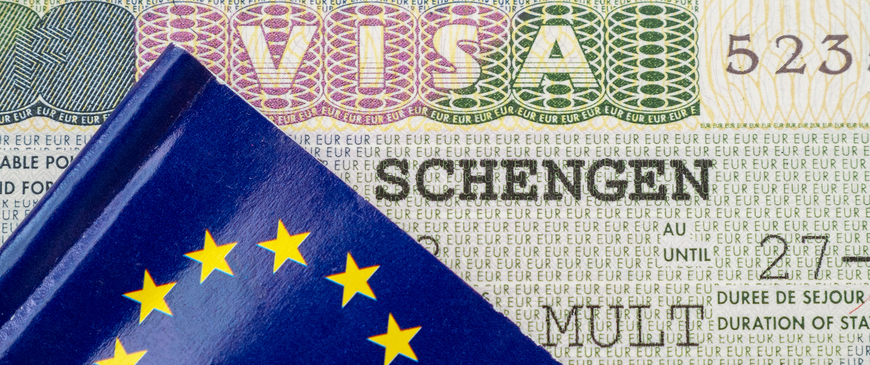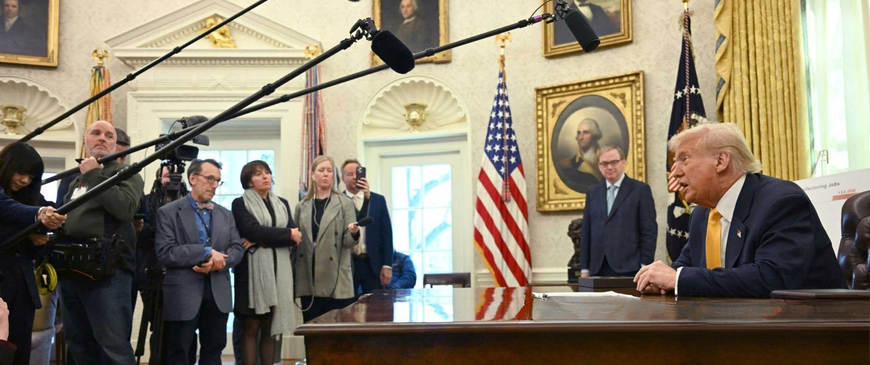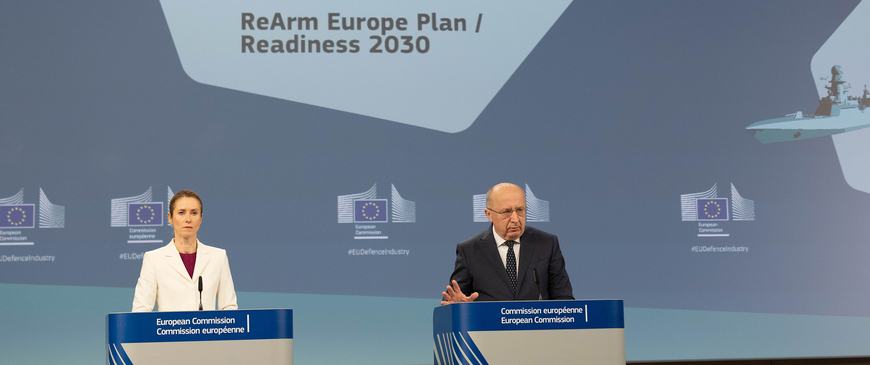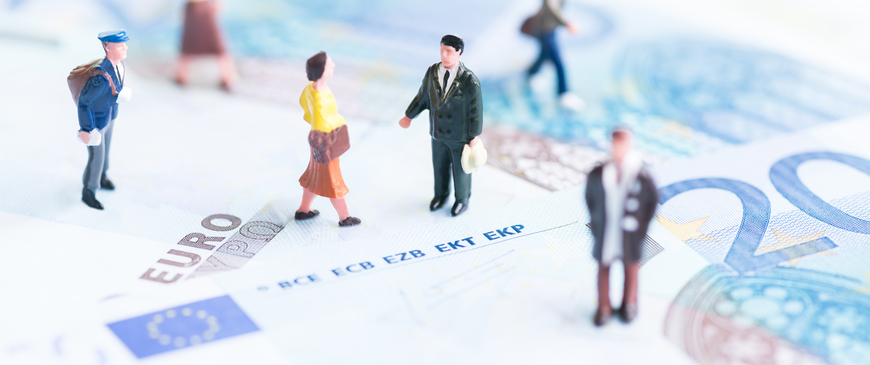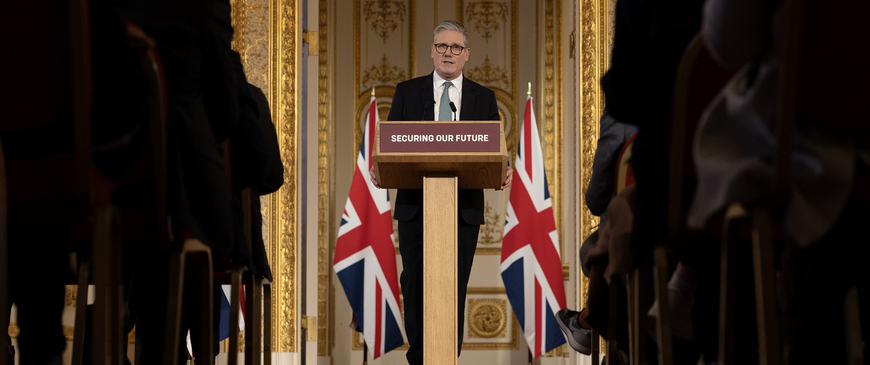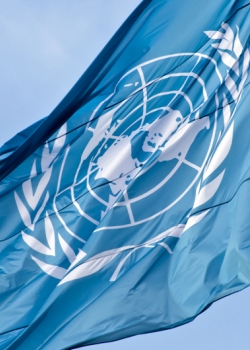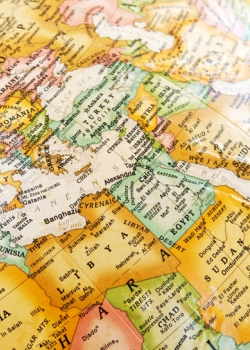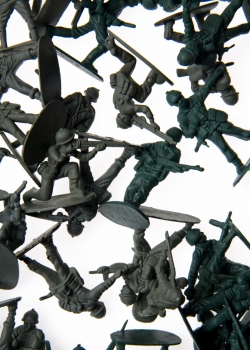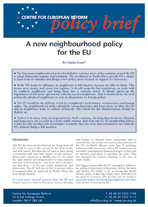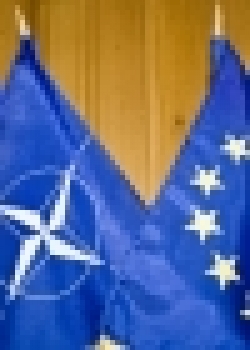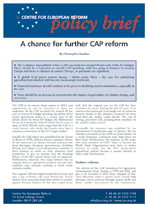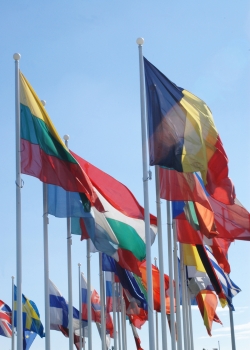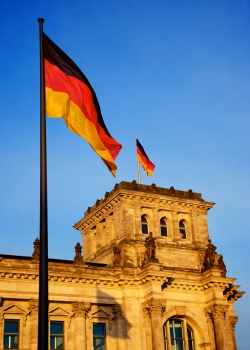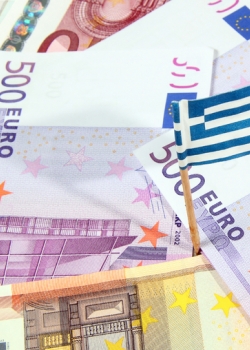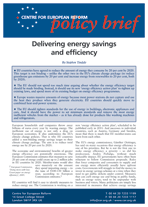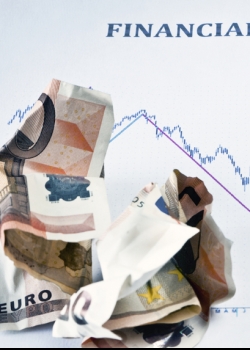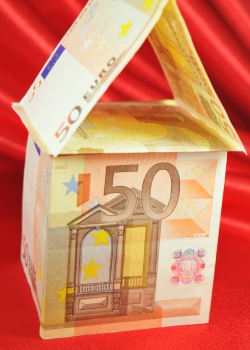Research
The eurozone's grand bargain: Political pain without economic gain?
01 April 2011
Ever since the eurozone crisis broke out in late 2009, European leaders have sought to reconcile two mutually incompatible objectives: the need to restore market confidence in the zone's indebted periphery; and the unbending refusal of creditor countries in the core to turn the zone into a 'transfer union'.
The EU budget: The Union risks having the wrong debate
01 April 2011
In an age of fiscal austerity, the focus of the forthcoming EU budget talks will be even more strongly on net balances: how much a country pays in and how much it gets back.
Europe's damaging obsession with 'competitiveness'
31 March 2011
Many European policy-makers and business leaders believe that a country's economic growth prospects depend on its ability to capture a growing share of global markets.
Issue 77 - 2011
25 March 2011
- Europe needs a military avant-garde, Charles Grant
- The eurozone's grand bargain: Political pain without economic gain? , Philip Whyte
- The EU budget: The Union risks having the wrong debate, Stephen Tindale
Turkey, the EU and the Mediterranean uprisings
16 March 2011
The revolts in Tunisia, Egypt and Libya have brought home to many people that Turkey has become a force to be reckoned with in this region. Turkey enjoys lots of credibility in the Arab world. It has burgeoning trade ties and solid political relations with many Middle Eastern and Mediterranean countries.
What cuts in US defence budget will mean for the transatlantic alliance
15 March 2011
The US defence budget seems set to fall as Washington begins to restore order in its finances. Spending on the military has reached such heights – $700 billion, or 20 per cent of the US federal budget – that it has become too large for deficit-cutters to ignore.
A new neighbourhood policy for the EU
11 March 2011
The revolutions in North Africa have exposed the failings of the EU's neighbourhood policy. Rather than fostering democracy, the policy entrenched autocracy.
What should NATO’s new strategic concept say about Russia?
09 March 2011
Since the fall of the Berlin Wall, NATO has strived to reduce mutual suspicions with Russia and to build a more co-operative relationship. So it is vexing that 20 years on, Russia continues to view NATO as a hostile alliance.
A chance for further CAP reform
28 February 2011
This policy brief argues that the reform of the Common Agricultural Policy which Commissioner Fischler began over a decade ago must now be completed.
The EU’s new politics of movement
17 February 2011
The freedom enjoyed by EU citizens to live and work in each others' countries is a unique liberty. It is the basis around which European governments have tried to build a single border, a compensatory system of co-operation between police, judges and immigration officers and a common refugee policy.
European political parties are the key to EU legitimacy
01 February 2011
The European Parliament sometimes exasperates its friends. MEPs have made the wrong calls on some policy questions and they delayed reforming their malfunctioning pay and allowances system until the creation of a harmonised salary scheme in 2009.
A new opportunity for EU foreign policy
01 February 2011
The EU's foreign policy has not impressed many people in recent years. A wide range of views among member-states has made it hard for the EU to develop focused policies on key issues such as Russia and China.
Is Germany really rebalancing?
01 February 2011
Germany has rightly been criticised for its dependence on exports and its huge trade surpluses. In normal times, when economies are growing healthily, trade imbalances pose less of a problem.
Issue 76 - 2011
28 January 2011
- European political parties are the key to EU legitimacy, Sir Julian Priestley
- A new opportunity for EU foreign policy, Charles Grant, Katinka Barysch, Tomas Valasek
- Is Germany really rebalancing?, Simon Tilford
Ireland’s election and the EU: From poster child to enfant terrible?
28 January 2011
Ireland will elect a new government on February 25th to replace a discredited administration loathed by most Irish voters. At first sight, it seems unlikely the election will re-open the fundamentals of a bail-out agreed with fellow eurozone members and the IMF last November.
Can Greece be saved?
20 January 2011
Will Greece have to restructure its debt? Among most West European economists and investors, this now seems to be a foregone conclusion.
Delivering energy savings and efficiency
19 January 2011
The EU should not waste its time arguing about whether to make its energy efficiency targets binding. Instead, it should focus on practical steps to improve energy efficiency. In this new CER policy brief Stephen Tindale calls for a strengthening of the EU's so-called 'combined heat and power directive' to...
Euro crisis: In defence of investors
17 January 2011
The eurozone’s fiscal position is better than the US and UK, and the crisis-hit members of the currency union are doing more to strengthen their public finances than either of these countries.
Reflections on Tommaso Padoa-Schioppa and the euro
13 January 2011
At the end of last year, Europe lost Tommaso Padoa-Schioppa, an eminent central banker and economist, and one of the founding fathers of the euro.
Pages
- « first
- ‹ previous
- 1
- 2
- 3
- 4

